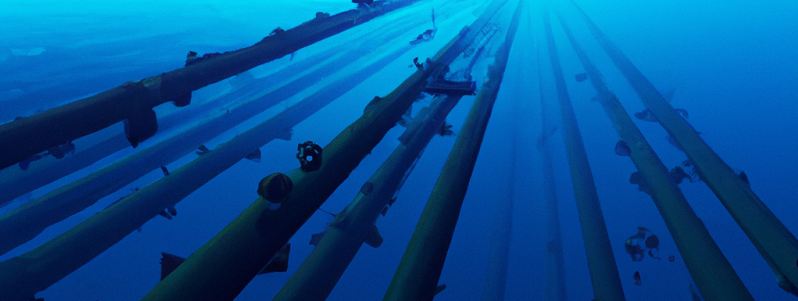On Sept 26, Danish authorities stated that a gas leak from the Russian-owned Nord Stream 2 pipeline drained into the Baltic Sea. Nord Stream 2 is a 1,234-kilometer-long pipeline intended to deliver natural gas from Russia to Germany. It was reported that the gas pressure in the pipeline dropped sharply, even though the pipeline had never been operational because Germany suspended its certification after Russia recognized some Eastern Ukraine regions as independent states.
Soon, additional leaks were found. Altogether four leaks were reported by Denmark and Sweden in Nord Stream 1 and 2. Nord Stream 1 has not been in operation after Russia closed it in August. Explosions were recorded by seismologists before the leaks.
Since the Russia’s invasion of Ukraine started in February, there has been an escalating tension between Europe and Moscow. The EU repeatedly accused Russia of weaponizing gas supplies. This time, the EU said the leaks resulted from sabotage, but did not accuse a specific entity. Kremlin dismissed the accusation of sabotage. Since Russia already turned off the supplies, there seems to be little incentive to damage the pipelines. Regardless of the cause of the leaks, the incidents point to the vulnerability of the European energy infrastructure.
Why it matters: Russia typically supplies about 40% of Europe’s natural gas, mostly by pipeline. Russia accounted for 55% of Germany’s natural-gas imports in 2021.
Further Possibilities
1. An energy consulting service to help companies navigate volatile energy markets, secure supplies, or reduce their energy consumption, such as through energy audits or consulting
2. Provide energy-efficient products or services to businesses, such as energy-saving lightbulbs, appliances, or insulation.
3. Offer renewable energy solutions to businesses, such as solar panels or wind turbines.







